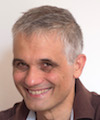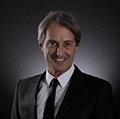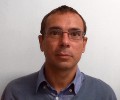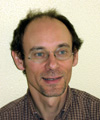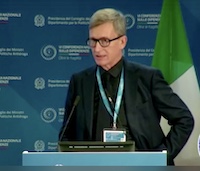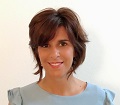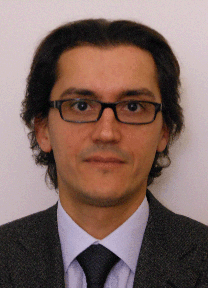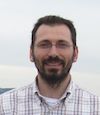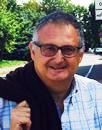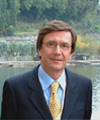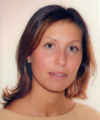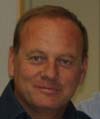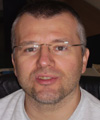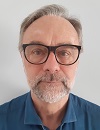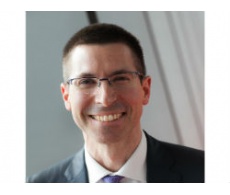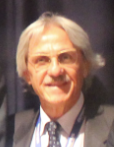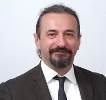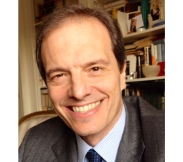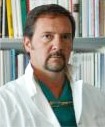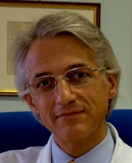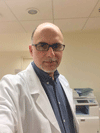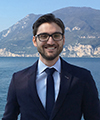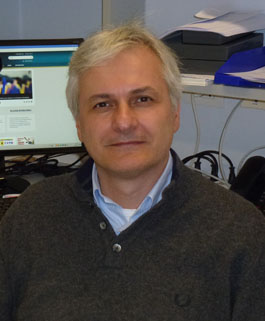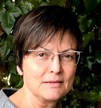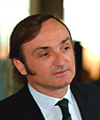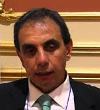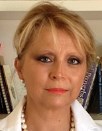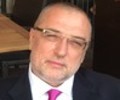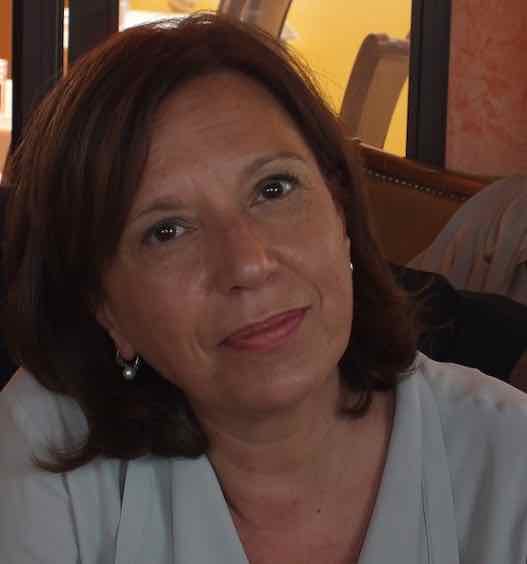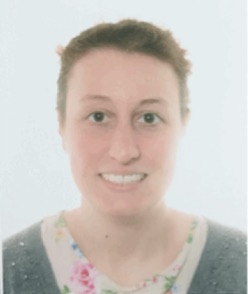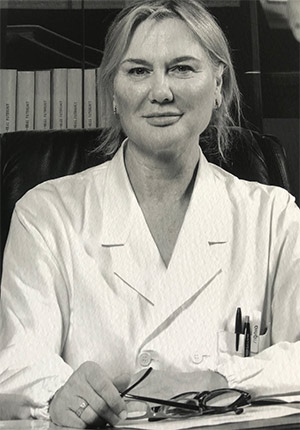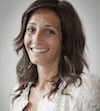The teaching is organized as follows:
Period
LEZIONI 1° SEMESTRE 1° ANNO
Period
LEZIONI 1° SEMESTRE 1° ANNO
Period
LEZIONI 1° SEMESTRE 1° ANNO
Period
LEZIONI 1° SEMESTRE 1° ANNO
Period
LEZIONI 1° SEMESTRE 1° ANNO
Learning outcomes
The aim of the course is to deepen the pedagogical and educational meanings and issues, referable to subjects with special educational needs; to introduce to the neurobiological and neurophysiological correlates of human cognitive functions and to the neuropsychological evidence of deficit of cognitive functions following focal brain lesions. The course also offers a path of critical knowledge of the historical development of medicine and medical-biological thought from antiquity to the present, with particular reference to the understanding of the principles that underlie the scientific methodology. It provides the basic theoretical tools of quantitative medicine illustrating techniques of descriptive and inferential statistics, as well as basic concepts of computer science, such as algorithm, code and encoding, programming language, computer architecture. This course displays meanings and educational paths about special needs subjects, to improve more suitable strategies in professional actions. Moreover, students will may be called to meet new cultural and conceptual job patterns. At the end, they will be able to know how to apply or improve resources in inclusive processes; know the "core" of special education, by pratical knowledge; explore innovative visions and dimensions to improve inclusive processes, in various professional realities; master different methods and strategies about surgery with special needs people. INFORMATICS MODULE Educational objectives The course aims to introduce students to the basic concepts of computer science, such as the concepts of algorithm, code and coding, programming language, architecture of a calculator. GENERAL PSYCHOLOGY MODULE Educational objectives Neurobiological and neurophysiological correlates of human cognitive functions. Neurospychological evidence of cognitive function deficits as a result of focal cerebral lesions. MEDICAL STATISTICS MODULE The course aims to introduce the basic theoretical tools of Quantitative Medicine. The course points to prepare students to: - describe, interpret and communicate appropriately the information gathered on a collective of patients (or other experimental units); - assess the reliability of the measurements in the biomedical field, in terms of sensitivity, specificity, accuracy and precision; - generalize the observations collected on a limited number of subjects to the population of origin using elementary inferential techniques - read critically the articles of the biomedical area MEDICAL HISTORY MODULE To obtain a critical knowledge of the historical evolution of medical and biological sciences from the antiquity until the current time, with special attention to the principles of the scientific method. The course encompass also a section about the history of dentistry and related disciplines. The program is divided in two main sections: General section: Epochs, events and figures in the history of medicine Special section: History of dentistry
Program
------------------------
MM: DIDATTICA E PEDAGOGIA SPECIALE
------------------------
Special Educations: definitions; Right to healt in W.H.O. and in UN Convention on the rights of persons with disabilities How to win "odontophobia": surgery in meaningful part of body, particularly for special needs people Good practices in odonto-surgery for: a) sensory disabilities; b) autism and mental hardship; c) bodily disabilities
------------------------
MM: STATISTICA MEDICA
------------------------
Introduction: The purpose of the statistics in medicine. Descriptive statistics 1) The measurement process and the different types of measurement scales 2) The statistical variables and their representation by means of frequency distributions: tables with one or two variables. 3) Graphical representation of a frequency distribution 4) Measures of position (mean, median, mode, percentiles, weighted average) 5) Measures of dispersion (range, interquartile deviation, deviation, variance, standard deviation, coefficient of variation) Probability 1) Definitions of probability: classical, frequentist, subjectivist 2) The rules of calculation of probability: addition and product rule 3) Independent and conditional probability 4) The sensitivity and specificity of a diagnostic tool 5) ROC curves 6) Bayes theorem and its applications to differential diagnosis 7) Random variables 8) Normal Distribution 9) Population and sample. Introduction to the sampling theory 10) The sampling distribution of an estimator (sample mean) Inferential Statistics 1) Point and interval estimates: confidence interval 2) The logic of hypothesis testing: the null and the alternative hypothesis; first and second type error; the power of a test 3) Comparison of a sample mean with a population mean: z-test and t-test 4) Comparison of two sample means: t-test for unpaired data and for paired data 5) Chi-square test 6) Correlation and regression
------------------------
MM: PSICOLOGIA GENERALE
------------------------
------------------------
MM: INFORMATICA
------------------------
- Introduction - Information encoding - Algorithms and problem solving. - Languages for information encoding - Basics on hardware: the architecture of a computer. - Basics on software: the operating system. - Security
------------------------
MM: STORIA DELLA MEDICINA
------------------------
General section: Epochs, events and figures in the history of medicine A) Paleopathology B) Medicine in ancient civilizaqtions C) The classic antiquity: medicine in Greece and Rome D) The Islamic medicine E) The European Middle Ages: -the School of Salerno -the rise of universities and the teaching of medicine -the origins and development of the hospital assistance -medieval medicine and surgery F) XV, XVI and XVII century -the Humanistic Period and the Renaissance -the advancements of anatomy -surgery in the XVIth century -the experimental method in medicine. Harvey and the doctrine of blood circulation -anatomy and microscopical anatomy -medical and surgical schools in XVIth century G) Medicine in eighteenth century -anatomy and physiology -Morgagni and the beginnings of morbid anatomy -the medical systems -the vaccination -the surgery -the anatomo-clinical method H) The scientific developments of nineteenth century -anatomy, physiology, biochemistry -the Cell Theory, histology and hystopatology -microbiology and infectious diseases -the clinics and pharmacotherapy -developments in surgery: anesthesia, antisepsis, asepsis -the new instruments for diagnosis -medical and surgical specialization. Special section: History of dentistry -the paleopathology and ancient findings of oral diseases -the care of teeth in ancient civilizations, in the Middle Ages and Renaissance -scientific groundworks for dentistry from XVI and XVII century -the evolution of dentistry and related disciplines from XVIII to XIX century -changes in the public exercise. The cabinet, instruments and equipment. The schools of Dentistry -materials and prosthesis in dentistry and their evolution
Bibliography
Reference texts
| Author |
Title |
Publishing house |
Year |
ISBN |
Notes |
| Daniel WW, Cross CL |
Biostatistica
(Edizione 3)
|
Edises |
2019
|
|
|
| Norman G, Streiner D |
Biostatistica: quello che avreste voluto sapere...
(Edizione 2)
|
Ambrosiana |
2015
|
|
|
| Swinscow TDV, Campbell MJ |
Le basi della Statistica per scienze bio-mediche
|
Edizioni Minerva Medica S.p.A., Torino |
2004
|
|
|
| W. W. Daniel, C. L. Cross |
Biostatistica Concetti di base per l’analisi statistica delle scienze dell’area medico-sanitaria
(Edizione 3)
|
EdiSES |
2019
|
9788833190419 |
|
| Verlato G, Zanolin ME |
Esercizi di Statistica Medica, Informatica ed Epidemiologia
|
Libreria Cortina Editrice, Verona |
2000
|
|
|
| Villani S, Borrelli P |
Excel & Statistica Medica
|
Medea s.r.l. Pavia |
2013
|
|
|
| Sciuto, Buonanno, Mari |
Introduzione ai sistemi informatici 5/ed
|
McGraw-Hill |
2014
|
9788838668326 |
|
| Cacciari Papagno |
Psicologia Generale e Neuroscienze Cognitive
(Edizione 1)
|
Il Mulino |
2006
|
88-15-11057-7 |
|
| V. Giuffra, G. Fornaciari |
Manuale di storia della medicina
|
Felici ed. s.r.l. |
2011
|
|
|
| P. Zampetti |
Storia della Odontoiatria Infantile
|
Martina ed., Bologna |
2007
|
|
|
| P. Zampetti |
Storia dell’Odontoiatria
|
Aracne ed. Roma |
2009
|
|
|
| L. Borghi |
Umori. Il fattore umano nella storia delle discipline biomediche
|
Società Editrice Universo |
2013
|
|
|
| Docente |
Viene distribuito come traccia di studio il testo di tutte le diapositive proiettate nel corso delle lezioni
|
|
|
|
|
Examination Methods
------------------------
MM: DIDATTICA E PEDAGOGIA SPECIALE
------------------------
Oral interview, with: a) teacher's questions on syllabus main parts; b) students will prepare a choice subject's oral exposition on "good practices in attendance or surgery", about one or more cases or situations seen in the course.
------------------------
MM: STATISTICA MEDICA
------------------------
The exam is written and consists of multiple choice tests and exercises. The answers provided in the examination will be discussed with the student.
------------------------
MM: PSICOLOGIA GENERALE
------------------------
------------------------
MM: INFORMATICA
------------------------
Written exam with exercises and questions with multiple responses on the arguments of the program of the course. Typically the exam consists of 16 questions, for each question a correct response provides 2 points, while incorrect or missing answers provide 0 point. In this way the maximal score is 32/30 which corresponds to 30 e lode. The exam is the same for students that have attended classes and for those who have not attended.
------------------------
MM: STORIA DELLA MEDICINA
------------------------
The exam is aimed at verifying students' learning of the entire program of the module, both for the general part and for the special part. The test will take place after the end of the lessons, within the lapses provided by the didactic schedule for the exams, and the sessions are set in agreement and in coordination with the other teachers of the Integrated Course. The exam consists of a written answer to questions formulated as a quiz with a choice between multiple answers. Grades are given on a scale of 30/30 and the test is overcome with reaching the minimum score of 18/30. The grade of the single module is then sent to the Coordinator of the Integrated Course, which calculates the final grade as the average of the votes given by the individual exams. The test does not differ in the case of attending or non-attending students.
Students with disabilities or specific learning disorders (SLD), who intend to request the adaptation of the exam, must follow the instructions given HERE
 mila.dallapreda@univr.it
mila.dallapreda@univr.it
 045 8122470
045 8122470
 mattia.marchiori@univr.it
mattia.marchiori@univr.it
 guido.martignoni@univr.it
guido.martignoni@univr.it
 alessia.pardo@univr.it
alessia.pardo@univr.it
 dora.renna@univr.it
dora.renna@univr.it
 annarita.signoriello@univr.it
annarita.signoriello@univr.it


